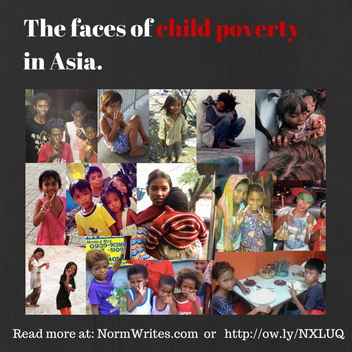
So I’ve compiled a few photos of poor street children from my recent stint living in Cambodia and the Philippines, two of the poorest countries in Southeast Asia. This is just a very small sample of the children I’ve encountered and happened to shoot photos of. Every time I do so I ask permission, and/or give some money or food to them. Most of the time they’re thrilled, and want to look at their own photo in my phone or camera. I focus on helping children because they haven’t done anything to warrant their circumstances - they're not guilty of making bad choices. Instead, they’re born into the curse of poverty, and can’t fight for themselves.
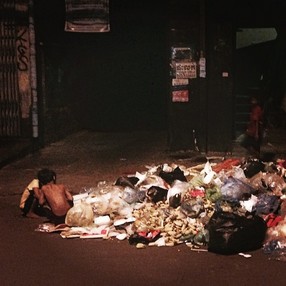
In fact, more than 1 billion children are living in poverty, according to UNICEF. 1 in 5 children around the world don’t even have clean drinking water, and around 1 in 4, enough food to eat. An alarming number of children don’t get the proper immunizations and die of easily preventable diseases like malaria, measles, and diarrhea – the three biggest killers of children that end about 500,000 young lives each year.
The statistics go on and on, but if we only quantify child poverty by numbers and statistics, our perceptions tend to slip from compassion to calculation, and we start defining them as problems, not people. So let’s focus on a different statistic: one. The number one is the only way to define each of these children. Each as their own person, their own mind and spirit, just like you or me.
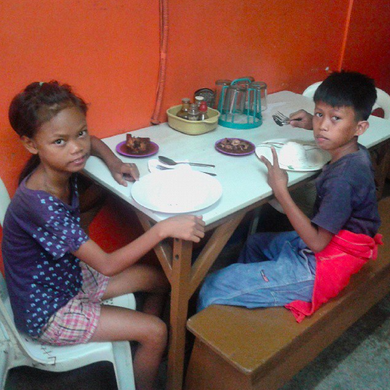
I try not to give out out money to street kids. Too often, they’re sent out by gangs or even their own parents. The kids are forced to walk the streets to sell things or beg all day and night, only to turn over the money. Handing over money to kids who are sent out by adults only perpetuates the cycle.
So I ask if they are hungry and offer to buy them some food. Usually they agree happily, and point out the closest food vendor on the street or corner store. But I even have to be careful buying food, as the kids will try to run game on me. Inside the store, they ask if they can buy these big cans of condensed milk formula. At first I thought they wanted it because it was so nourishing, but I found out that bring the cans of milk back to the store later on for a refund, walking away with the cash after all.
| When I go in a corner store or mart with these kids, I make sure they buy food that they’re actually going to eat. I usually tell them they can get one thing only, because if you buy more than one thing for one, all the rest want the same . The most popular choice is a big bowl of instant noodles, followed by ice cream. Kids all over the world love ice cream, no matter where they are. They always try to sneak a can of Coca Cola or Red Bull up onto the counter for me to pay, but I make them buy a big bottle watered or milk to drink, instead. |
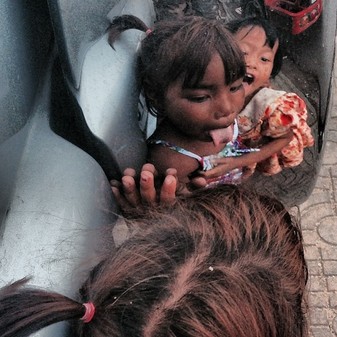
In poor countries, there are no government programs to help; no social security, food stamps, welfare, free medical care, or anything else for the poor. So these kids don't get the simple vaccines and immunizations that our kids enjoy. They are rife with worms and malaria and infections.
They hope for the charity of NGOs, orphanages, schools, or community centers that receive foreign aid or are set up by great, caring individuals. But corruption is also rampant among international NGOs, and even the good ones can only help a few.
| They live in the trash, some in communities that are built right on the city’s garbage dumps. There they walk barefoot, climbing piles of garbage and human waste, picking out metal or glass or things they can recycle for a few coins – or food to eat. Every year, tens of thousands of children around the world die in these dumps. |
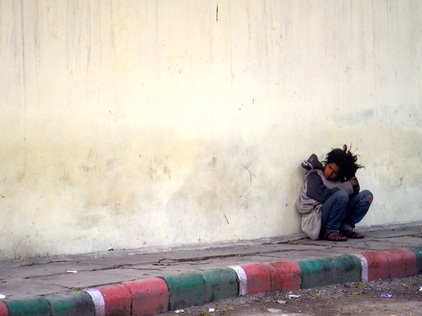
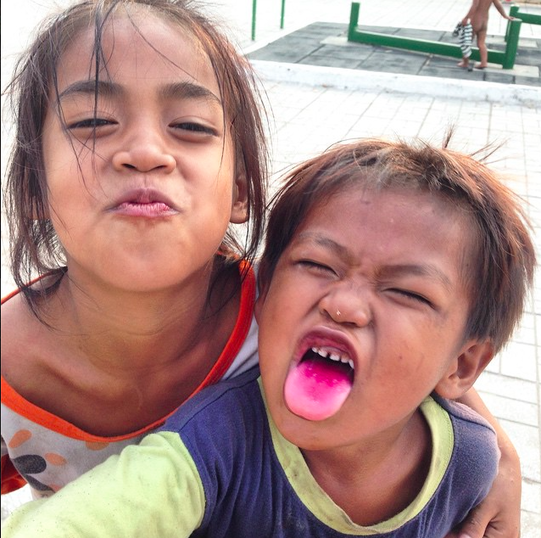
This little gangsta of love on the right is a homeless toddler who followed me about 4 blocks on my way walking to the riverfront to exercise, pestering me to pick him up and carried him the whole way. I thought we were looking for his mom but he brought me to the soda vendor because he wanted a drink. He then hung around through my workout and terrorized me afterward, whacking me on the head with a water bottle until I lifted him onto the jungle gyms repeatedly. I don't think you adopt kids in southeast Asia - they adopt you!
| Too often, I see 6-year old children carrying around and raising their baby and toddler brothers and sisters, still expected to beg for money in traffic on the hot, polluted, and dangerous streets. If you happen to be up at 3am in any of southeast Asia's cities, you'll probably see more little street kids out hustling and working than you would at 3 in the afternoon. |
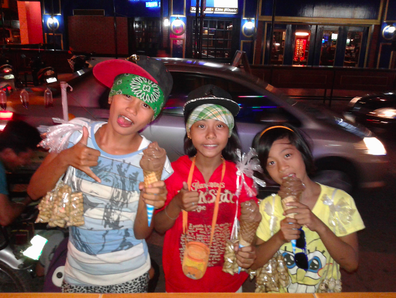
They give each other nicknames like my little homie, Michael Jackson, in the Philippines and talk about “their style” when they see foreigner’s clothes and haircuts and glimpse the occasional YouTube video on someone else’s phone.
| They wear whatever they can salvage from the trash or what they find discarded, often with hilarious, comical, or in the case of the little girl to the left, beautiful results. Little kids often don't have any clothes at all and just run around naked and dirty, and most kids go barefoot unless they're lucky enough to find a pair of old flip flops. |
| These street kids are vulnerable to some really bad shit: violent gangs, sexual exploitation by adults who force or sell them in prostitution from young ages. So most of the time, the kids don’t walk around and beg or dig in the trash by themselves, but work the streets with other kids in little hungry packs. So when they one kid finds food or gets a donation from a tourist, they all can eat. There’s also safety in packs and frankly, being among other kids is more fun for them than being alone all day and night. |
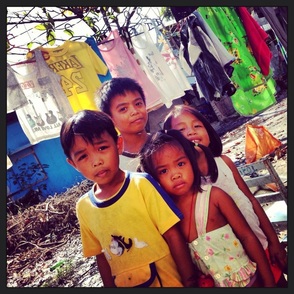
They even engage in scams, distracting a bar patron so another kid could steal his iPhone off the table, or sending a fall guy to get caught trying to steal a drunk tourist’s watch so others can rifle through his pocket.
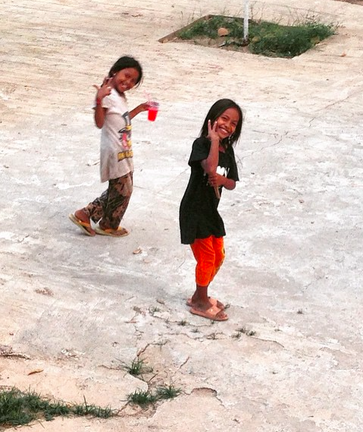
I tend to agree with them.
-Norm :-)
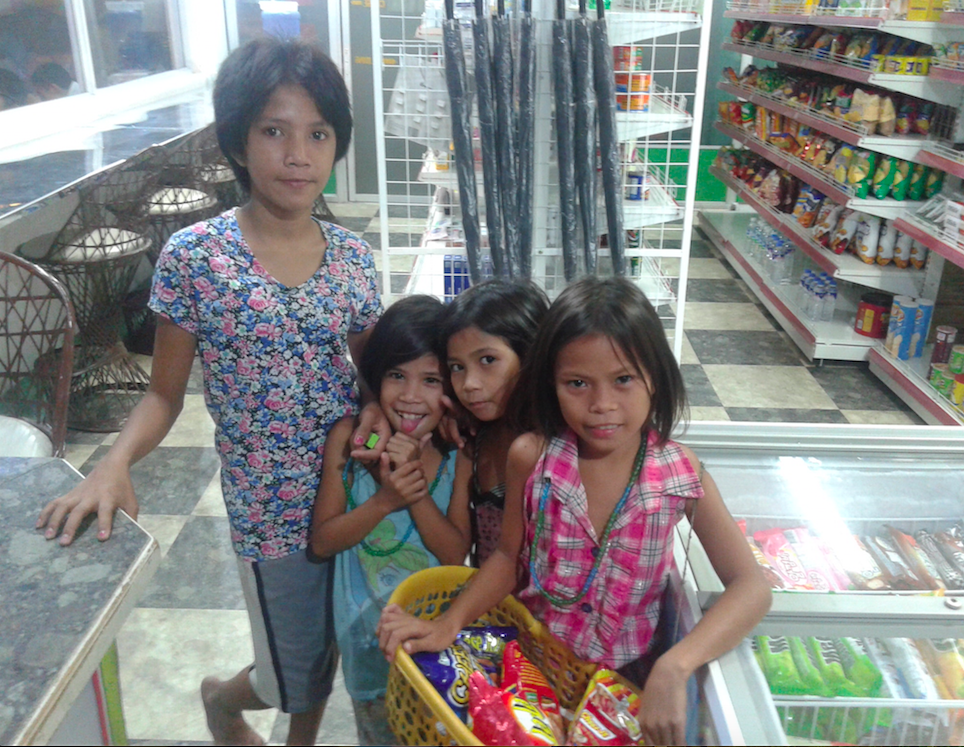
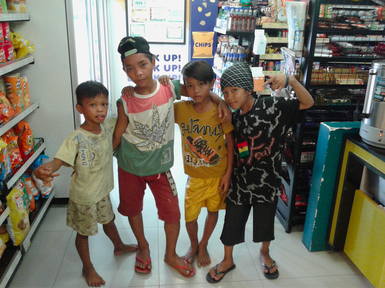
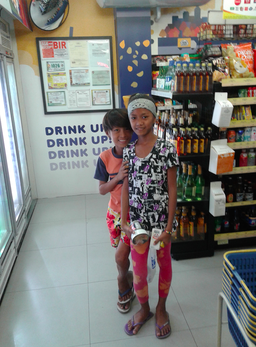
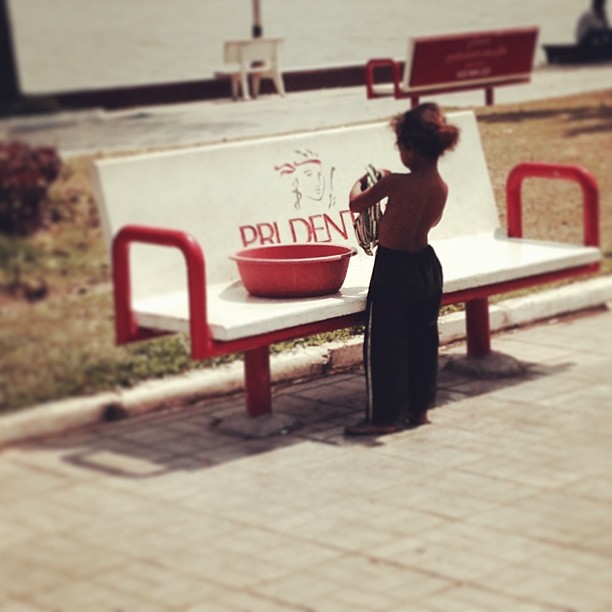
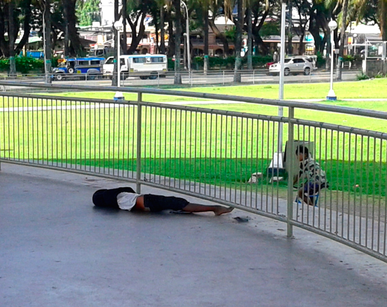
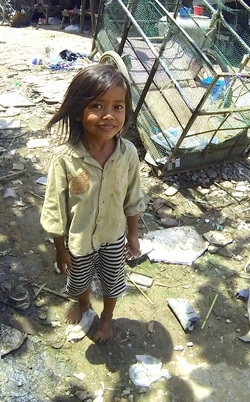
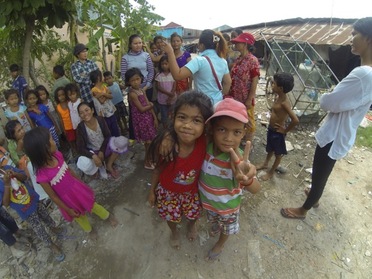
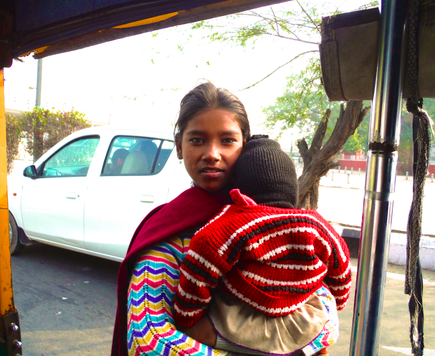
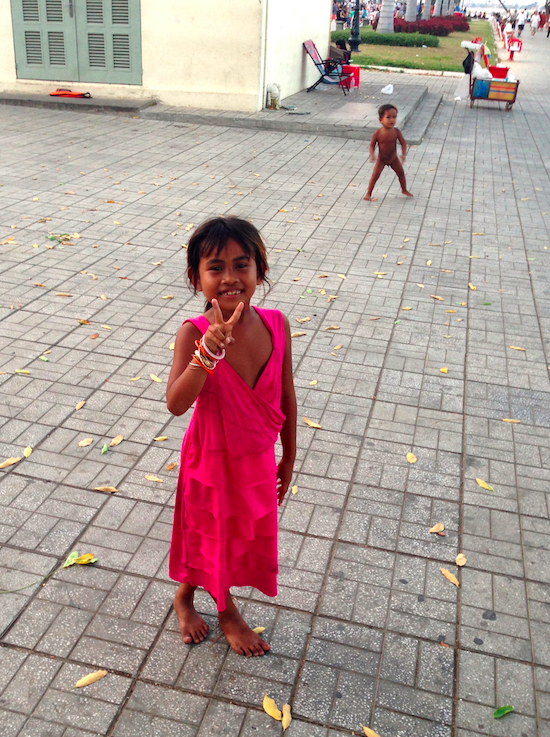
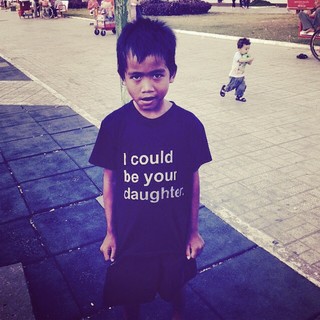
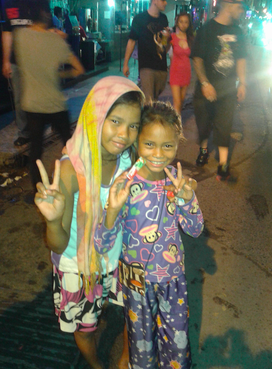
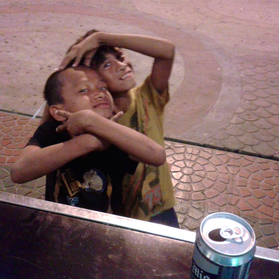
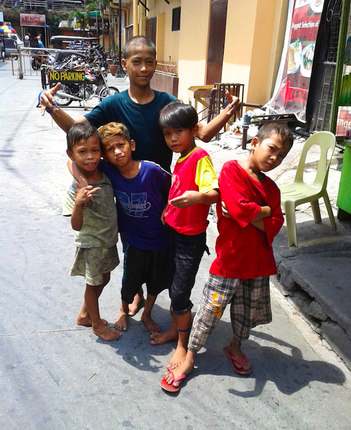
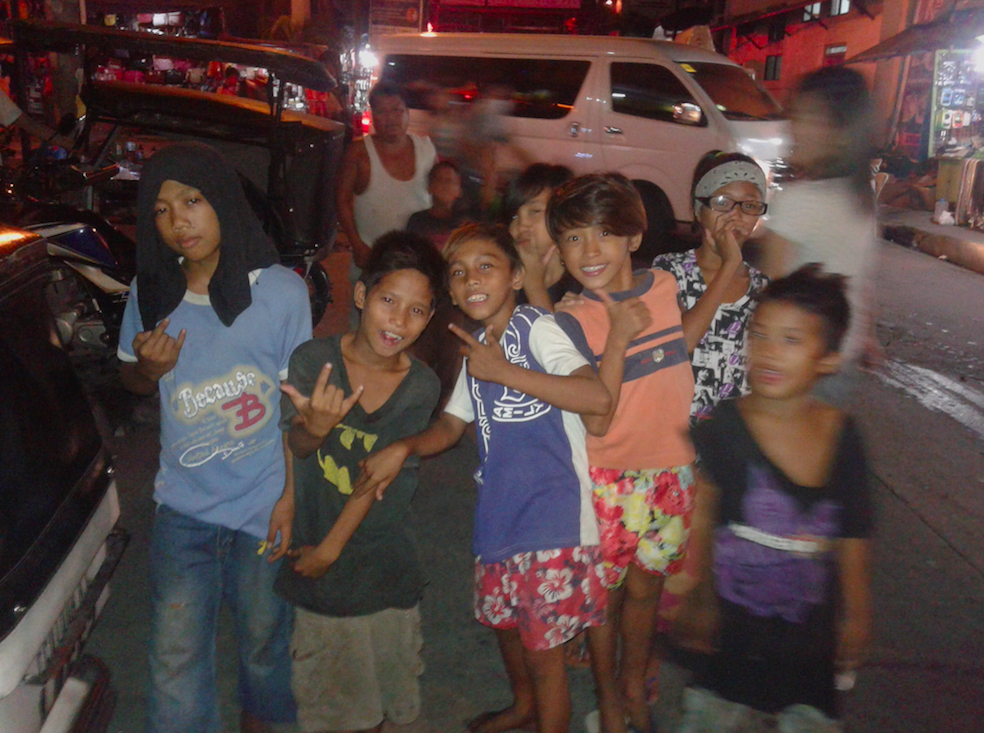
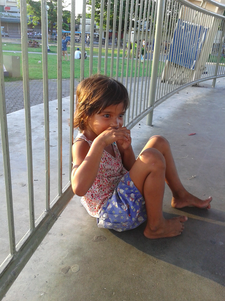
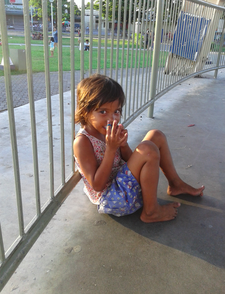
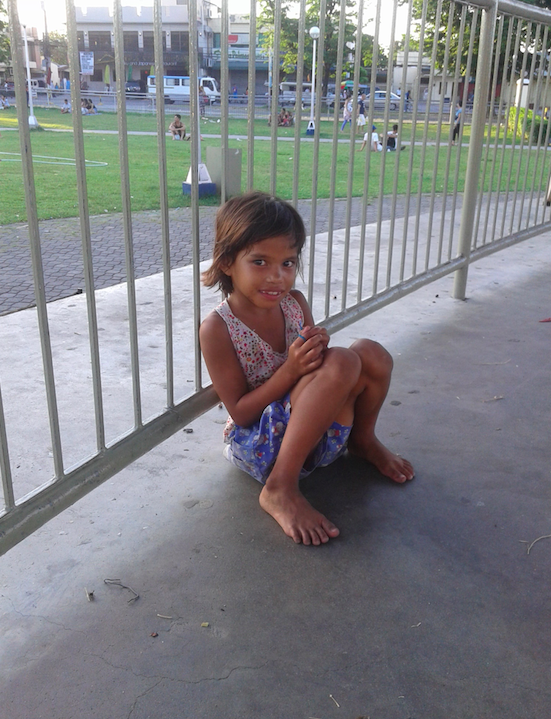
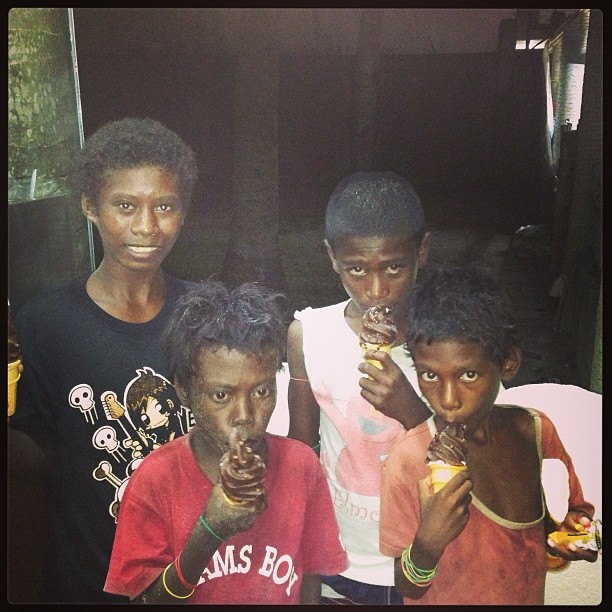
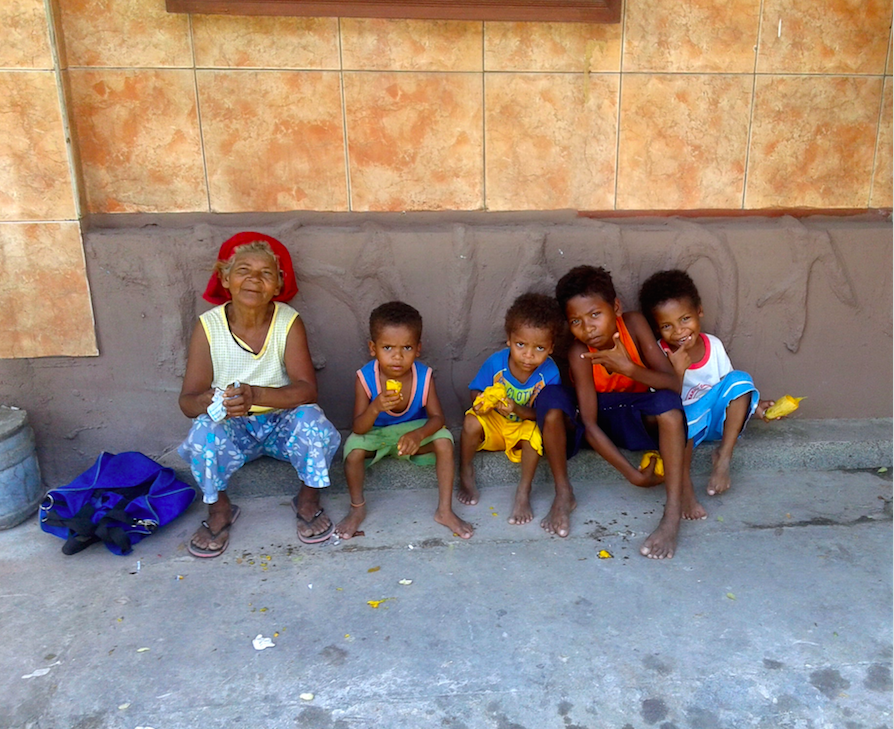
 RSS Feed
RSS Feed